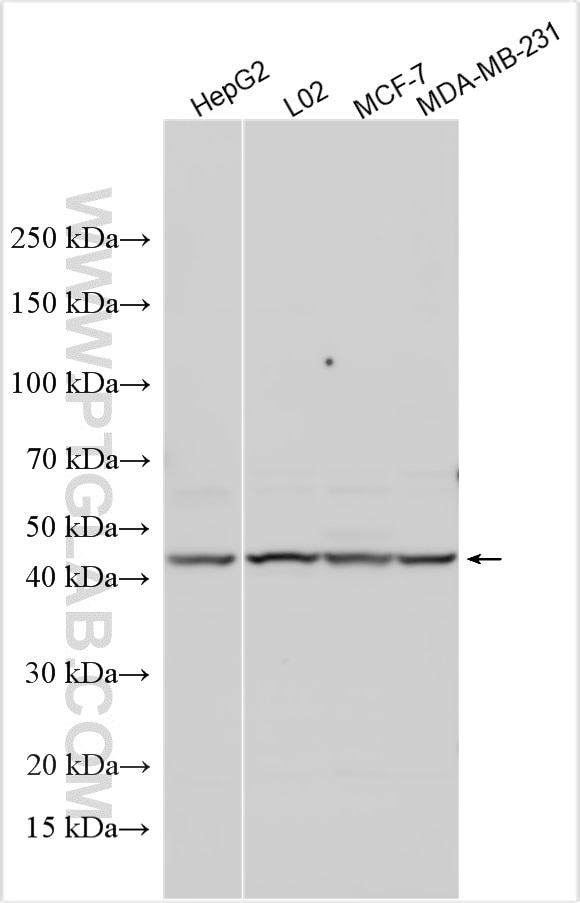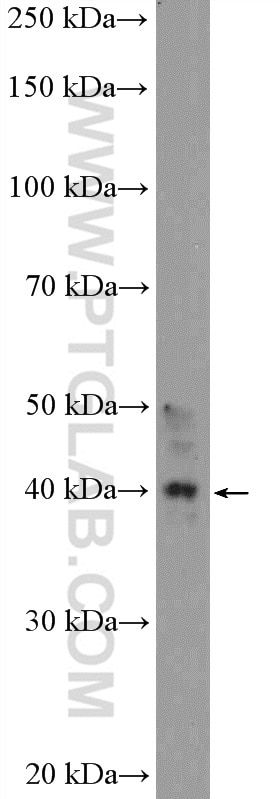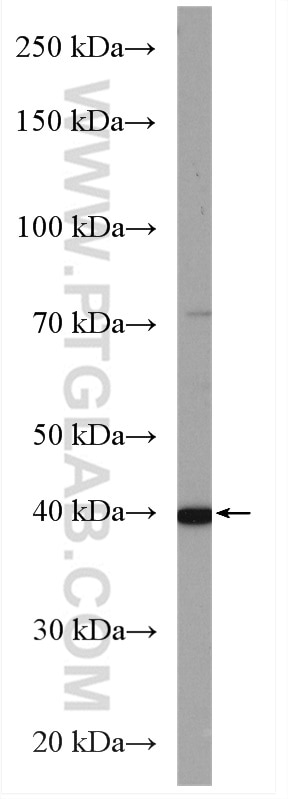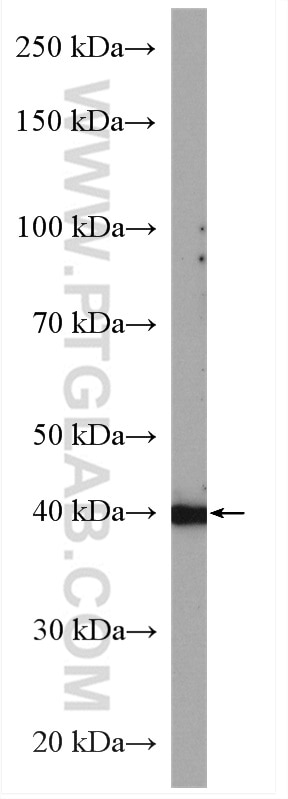WDR74 Polyklonaler Antikörper
WDR74 Polyklonal Antikörper für WB, ELISA
Wirt / Isotyp
Kaninchen / IgG
Getestete Reaktivität
human
Anwendung
WB, ELISA
Konjugation
Unkonjugiert
Kat-Nr. : 20631-1-AP
Synonyme
Geprüfte Anwendungen
| Erfolgreiche Detektion in WB | HepG2-Zellen, K-562-Zellen, L02-Zellen, MCF-7-Zellen, MDA-MB-231-Zellen |
Empfohlene Verdünnung
| Anwendung | Verdünnung |
|---|---|
| Western Blot (WB) | WB : 1:500-1:2000 |
| It is recommended that this reagent should be titrated in each testing system to obtain optimal results. | |
| Sample-dependent, check data in validation data gallery | |
Produktinformation
20631-1-AP bindet in WB, ELISA WDR74 und zeigt Reaktivität mit human
| Getestete Reaktivität | human |
| Wirt / Isotyp | Kaninchen / IgG |
| Klonalität | Polyklonal |
| Typ | Antikörper |
| Immunogen | WDR74 fusion protein Ag14617 |
| Vollständiger Name | WD repeat domain 74 |
| Berechnetes Molekulargewicht | 385 aa, 42 kDa |
| Beobachtetes Molekulargewicht | 42 kDa |
| GenBank-Zugangsnummer | BC006351 |
| Gene symbol | WDR74 |
| Gene ID (NCBI) | 54663 |
| Konjugation | Unkonjugiert |
| Form | Liquid |
| Reinigungsmethode | Antigen-Affinitätsreinigung |
| Lagerungspuffer | PBS with 0.02% sodium azide and 50% glycerol |
| Lagerungsbedingungen | Bei -20°C lagern. Nach dem Versand ein Jahr lang stabil Aliquotieren ist bei -20oC Lagerung nicht notwendig. 20ul Größen enthalten 0,1% BSA. |
Hintergrundinformationen
WDR74, also known as WD repeat domain 74, is a protein-coding gene that plays important roles in various biological processes. WDR74 is involved in rRNA processing and ribosomal large subunit biogenesis. It is a 60S ribosome assembly factor, which is irreplaceable in ribosome biogenesis and is closely related to protein synthesis. WDR74 can induce nuclear β-catenin accumulation and activate Wnt-responsive genes, thus promoting cell proliferation and metastasis in various cancers.
Protokolle
| PRODUKTSPEZIFISCHE PROTOKOLLE | |
|---|---|
| WB protocol for WDR74 antibody 20631-1-AP | Protokoll herunterladen |
| STANDARD-PROTOKOLLE | |
|---|---|
| Klicken Sie hier, um unsere Standardprotokolle anzuzeigen |





